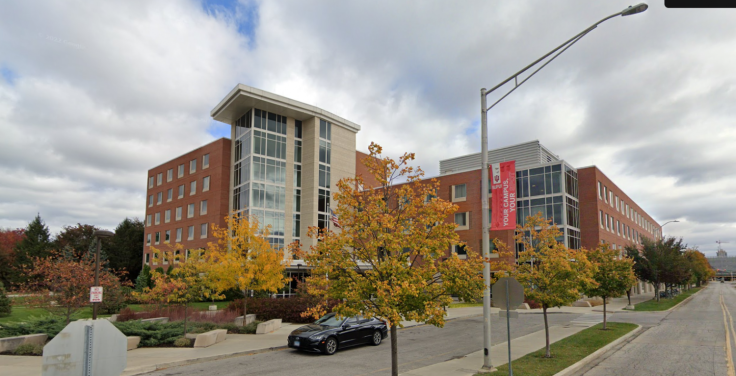Indiana University Revamps Protest Policy After Controversial Response To Pro-Palestine Encampment
By
Indiana University's Board of Trustees approved a new policy Monday regarding campus demonstrations following an independent review of the school's response to pro-Palestinian protests this past spring.
The new policy, which goes into effect Aug. 1, supports protests that don't disrupt university operations or hinder the expressive activity of another individual or group.
The decision comes days after an independent review found that IU pursued the "safest option available" in calling for state police to disperse protesters and shut down an encampment on campus in April, but that the administration's actions also "caused a number of unintended negative consequences."
"The Dunn Meadow report validated the need to update policies that were outdated, unclear and inconsistent across IU's campuses," board Chair W. Quinn Buckner said in a statement. "Indiana University has a longstanding commitment to advancing free speech. In order for free speech for all to flourish, we needed to clarify our policies so people clearly understand the allowable time, manner and place for free expression. We can't let one person or group's expression infringe on the rights of others, disrupt learning experiences for our students or interrupt regular university business."
While the new policy permits actions such as assembly in public areas, peaceful protesting, making speeches and carrying signs, it prohibits constructing temporary structures without approval at least 10 days in advance, outdoor amplified sounds that disrupt others and applying permanent markings to university property.
On Thursday, university President Pamela Whitten released the results of the six-week review by the Cooley Law Firm of events surrounding the arrests of protesters in April. The report also included recommendations on future policies and communication by school officials.
The report detailed Indiana University's discovery on April 24 that activists planned to build an encampment at Dunn Meadow, a space on the Bloomington campus traditionally used for "expressive activity," the following day. At the time, university policy permitted tents until 11 p.m., but safety concerns prompted officials to make a last-minute change to the rules.
"While they hoped the situation could be deescalated short of law enforcement involvement, IU's leadership believed it would be better to prevent an encampment than to take one down, and it would be safer to remove an encampment (if necessary) during daylight instead of at night," the report read.
But the next day, many protesters, unaware of the sudden policy change, were instructed to dismantle their encampment shortly after setting it up. Despite IU administrators distributing flyers about the new policy, several protesters pointed to the old guidelines and refused to take down their tents.
The IU Police Department was ill-equipped to handle the protest "in an increasingly volatile setting," the report continued, resulting in the administration's decision to seek assistance from state police.
In a May letter to the Board of Trustees, faculty and Sylvia Martinez, director of the school's Center for Research on Race and Ethnicity in Society, criticized the university's "militarized response" to what they described as peaceful campus protests. They also called for the resignation of the school's president and provost.
Although the decision to change the Dunn Meadow policy the night before a major protest had negative consequences, the review concluded that IU "balanced free speech, campus safety, and regular university operations amidst a challenging and rapidly evolving situation."
The firm recommended that IU should create clearer and more consistent policies regarding expressive activity, as well as hire and train more university police.
Additional free speech resources can be found on the university's website.
© 2026 University Herald, All rights reserved. Do not reproduce without permission.








